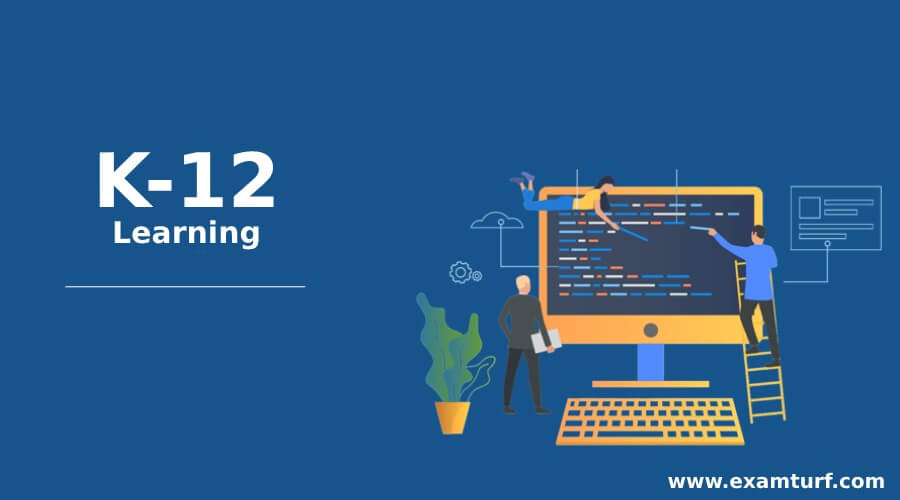
Introduction To K-12
The following article provides an outline for K-12 Learning. The K-12 education system is a modern education system to match the global requirements. The abbreviated K-12 means kindergarten to 12th grade. Under this scheme, education is focused on both academic and non-academic activities to excel the students in their interested area. K-12 program is summed up into 3 groups kindergarten, primary school, and secondary high school. Students will be graduated under this scheme and after their high school graduation, they are eligible to join university for higher study, apply for a job, or entrepreneurship.
Key Takeaways
- The K-12 education system is an advanced modern education system. Under the K-12 program, students learn both academics and non-academics, which help the students to build their livelihood for their future life.
- Advanced learning materials are utilized in the K-12 program.
- Both government and private sectors run K-12 education centers.
- E-learning is one more route for K-12 education.
What Is K-12 Learning?
- The K-12 program intends to give young children a thorough knowledge about all aspects by teaching academics and pull their skills by non-academic activities and students are prepared to face the modern world as mature adults.
- Learning under K-12 involves all academic subjects including math, science, social, modern technology, languages, etc.
- Skill development is introduced in the curriculum to enhance the hidden talents of the students like sports, singing, dance, drawing, communication, etc.
- The learning also involves teachers-students conversation, expertise inputs, assignments, Q and A, group discussions, etc.
K-12 Learning Modules/Subjects
The following are some of the common subjects or modules taught in K-12:
- Mathematics
- Social science
- Arts (drama, music, visual arts)
- Physical education
- Science
- Languages
K-12 Learning Materials
Given below are the K-12 learning materials:
- Textbooks
- Workbooks
- Software’s
- E-books
- Study tools
- Videos and animations
- Smart classrooms
- Libraries
- Computer labs
- Laboratories for experiments
- Whiteboard, compatible with marker pen and eraser
Learning Modes
K-12 teaching is mainly done in 2 modes, classroom and online.
1. Classroom Learning
- There will be face-to-face interactions between students and teachers in classroom learning.
- Learning through practical experiments and other activities are added advantage in classroom learning.
- Apart from academics, students learn socialization and cultivate good behaviors under teachers’ guidance.
- With many advantages, few disadvantages also there in classroom education in a rural area, students have to travel a long distance to attend a classroom. In cities also, there will be pick up and drop problems along with traffic annoyance.
- There may be disturbances in the classroom from some mischievous students.
2. Online Learning
- Traveling timings can be saved in online classes.
- Carrying heavy books is avoided.
- Students can record the lecture audio/videos and they can replay the recorded lesson if necessary.
- Listening to teachers with more concentration without peers’ disturbances.
- Online learning also has some disadvantages like there will be internet connectivity issues, some very poor students cannot buy electronic gadgets required for online learning.
- Electricity is necessary to attend live online classes, in rural areas if heavy rain or other problems, there may be a disturbance in the power supply.
- Online classes may hinder the student’s non-academic activities, especially physical education.
K-12 Learning Center
The common learning centers for K-12 programs are as follow:
- Government schools and colleges
- Private institutions
- Online education companies
- Coaching centers
- E-learning app
Recommended Articles
This is a guide to K-12 Learning. Here we discuss the introduction, K-12 learning modules/subjects, learning materials, modes & center. You can also go through our other suggested articles to learn more –
Are you preparing for the entrance exam ?
Join our Exam Preparations test series to get more practice in your preparation
View More